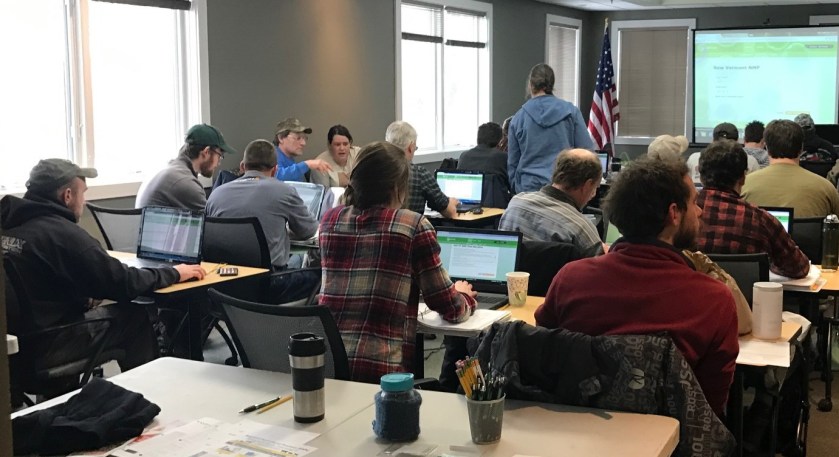Did you know you need to update your NMP every year to stay in compliance with the State of Vermont Required Agricultural Practices (RAPs)?
If your plan is out of date or you need assistance in updating your nutrient management plan, UVM Extension can help!!
If you took a NMP class through UVM and designed your plan in goCrop, please call the office where you took your original NMP class, or contact your closest location (listed below). You will need manure sample results every year, soil sample results every three years, and field records of the activities you performed annually. You may also need updated rotation calculations, depending on your situation. UVM Extension can help you identify everything you need and walk you through the process of getting it accomplished.
The three locations that can help you are:
- Middlebury Extension Office – 802-388-4969 or 1-800-956-1125
- St. Albans Extension office – 802-524-6501 or 1-800-639-2130
- St. Johnsbury Extension office – 802-751-8307 or 1-800-545-8920 (800 numbers toll free in Vt.).
At Middlebury UVM Extension Office
23 Pond Lane Suite 300, Middlebury, Vt
we are holding update sessions on the following days:
- Tuesday, January 14, 2020, 10:00 a.m. – 2:00 p.m.
- Tuesday, February 4, 2020, 10:00 a.m. – 2:00 p.m.
- Tuesday, February 18, 2020, 10:00 a.m. – 2:00 p.m.
- Future Tuesdays also tentative based on need
- or By Appointment
These sessions are for folks who have already taken a class with UVM Extension. If you have not taken a class with us, but would like help, give us a call.
Our sessions are informal. Please bring a lunch or snack if you need it to keep you going!
We have laptops, or you can bring your own. Remember to bring your NMP binder along with any records and documentation, including your login information. If your goCrop account is out of date you will need to renew your subscription with debit or credit card. If you have any other paperwork that is related to an updated NMP, such as MFO/LFO permitting, bring that along too. If you have new fields, you will need new maps and field information, including yearly and average RUSLE2 calculations.
Contact our office for more details, 802-388-4969.
To request a disability related accommodation to participate in this program, please contact Karen Gallott at (802) 388-4969 or 1-800-956-1125 (toll-free in Vt. only) so we may assist you.




